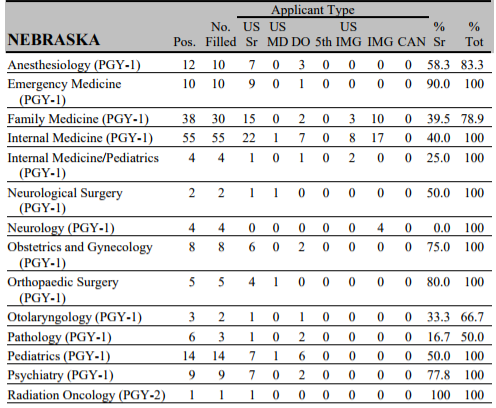Even in Health Care, Immigrants Do Jobs Americans Won't
If we want to solve the doctor shortage, we should import more foreign physicians.


The debate over American health care tends to focus on how we pay for services, rather than why we pay so much more than any other developed country. In a new working paper, Jeffrey S. Flier and Jared M. Rhoads of the Mercatus Institute suggest that we could lower costs by allowing more people to practice medicine.
In a comparison of 11 industrialized nations, they write, the U.S. has the second lowest number of physicians per capita: "2.5 physicians per 1,000 population, compared to a mean of 3.1 for the group and high of 4.2 for Norway." The Association of American Medical Colleges anticipates a shortage of 40,800 to 104,900 physicians by 2030, particularly in the fields of pediatrics, primary care, family medicine, and internal medicine. (Not coincidentally, these are four of the lowest-paying medical specialties.)
The association wants to address that shortage by securing more federal funding for physician training, but with no concessions on tuition, which averages $55,000 per year in the United States. Flier and Rhoads have some other suggestions: expanding the number of accredited U.S. medical schools, shortening the length of medical school, granting more independence to nurse practitioners and physicians assistants, and reforming state licensing boards so that medical doctors can no longer use their clout to suppress competition.
We could also, they add, make it easier for foreign-born, foreign-trained doctors to migrate to and practice in the U.S. Indeed, there are roughly 60,000 foreign medical doctors already living in the U.S. who aren't licensed to practice.
Foreign-born medical doctors who trained outside the U.S. already play a crucial role in providing care in America. These physicians "are substantially more likely to practice in rural and poorer communities and are overrepresented in primary care specialties, including family medicine and pediatrics," write Flier and Rhoads. A 2015 study found that international medical graduates (a group that includes Americans who train outside the U.S. and foreign citizens who train outside the U.S.) are filling a crucial care gap:
IMGs are more likely to practice in specialties in which a physician shortage would otherwise go unfilled. For example, a higher proportion of IMGs than other graduates serve socioeconomically disadvantaged populations across the United States. They also tend to fill the gaps in workforce demands in rural areas depending on the particular state. One study reported that 19.3% of IMGs, compared with 10.4% of osteopathic physicians, are practicing in rural areas. An ambulatory care survey published in 2009 found that most office-based IMG primary care physicians are in areas with physician shortages where Medicare and Medicaid patients are overrepresented. Compared with US medical graduates, a higher percentage of IMGs are also in solo practice. Overall, IMGs have been taking up opportunities to practice within patient populations that are facing difficulties caused by uneven distribution of the physician workforce.
It's possible that foreign doctors have lower debt loads and can thus pursue lower-paying specialties, or, because the American residency system prefers American born-and-trained physicians, that IMGs fill less desirable roles in order to practice in the U.S. at all. Either way, they're often willing to go to areas many American-trained physicians are not. Like Nebraska.
Every year, the National Residency Match Program publishes data showing what types of doctors matched to what kind of medical residency in each state (a medical residency of at least a year is required in order to receive a medical license in the U.S.). Here's what the numbers look like for Nebraska, which had a total of 93 open positions for family medicine and internal medicine in 2017:

Across the top of that chart are the various applicant types. "US sr" are fourth-year medical students attending allopathic medical schools in the U.S.; they will be M.D.s upon graduation, and 94 percent of them will "match"—as in, be selected for—a U.S. residency. Further to the right is "IMG," non-U.S. citizens who attended international medical schools; they land the fewest residency slots each year, with roughly 50 percent of applicants matching. In Nebraska, non-U.S. citizens who attended foreign medical schools filled 33 percent of the year-one primary care and internal medicine residency slots, and 100 percent of the neurology positions. In California, non-U.S. citizens who trained overseas filled only 10 percent of the internal medicine and family medicine slots.
More physicians want to live and work in California than in Nebraska, and American residency programs tend to favor U.S. citizens over non-citizens. Even in medicine, immigrants end up doing the jobs Americans won't.
What's more, foreign medical school grads are willing to do this work even though the U.S. licensure system penalizes physicians who train abroad by requiring them to do a residency regardless of whether they're already licensed to practice in their home country. This means not only that the U.S. can only import as many physicians as there are low-tier residency slots, but also that we spend Medicare money retraining foreign-born physicians without regard for their level of competence.
Canada also faces a doctor shortage, and it has turned to the international market to fill it. But rather than requiring every foreign medical school graduate to undergo retraining, Flier and Rhoads write, immigrants "may bypass postgraduate training requirements [in Canada] if he or she did residency training in Australia, Hong Kong, Ireland, New Zealand, Singapore, South Africa, Switzerland, the United Kingdom, or the United States." Most foreign-born-and-trained doctors who come to the U.S. are from India, the Philippines, Mexico, Pakistan, and the Dominican Republic, and there might be legitimate questions about the quality of training in those places. But that's an assumption we should interrogate, and even if it's accurate, it doesn't preclude the creation and administration of some kind of comprehensive equivalency exam that could assess whether their skills were transferable. Regardless of how we handle the question of reciprocity, importing more foreign physicians could save money and lives.
Editor's Note: As of February 29, 2024, commenting privileges on reason.com posts are limited to Reason Plus subscribers. Past commenters are grandfathered in for a temporary period. Subscribe here to preserve your ability to comment. Your Reason Plus subscription also gives you an ad-free version of reason.com, along with full access to the digital edition and archives of Reason magazine. We request that comments be civil and on-topic. We do not moderate or assume any responsibility for comments, which are owned by the readers who post them. Comments do not represent the views of reason.com or Reason Foundation. We reserve the right to delete any comment and ban commenters for any reason at any time. Comments may only be edited within 5 minutes of posting. Report abuses.
Please to post comments


I've been offering proctology exams to everyone, but an immigrant is always waiting there, finger ready. I tell you this, and I dare you to tell me that immigrants aren't taking our jobs.
Change your handle to BestUnderCoverSquick.
Subtitled?
"If we want to solve the doctor shortage, we should import more foreign physicians."
Doctor shortage, my ever-bleeding, overly-fucked-by ?Government-Almighty ASS!!!
Just give me permission to treat myself? After checking the internet for medicines side-effects and unwanted drug interactions, which I can tell you my family's doctors have NOT done for us, we have to do our homework for ourselves, anyway, AFTER paying these Government-Almighty-assisted trolls under the bridge? And I will need fewer parasitical doctors!!!
Will Reason.com, for once, take a REAL Libertarian stance here?!?!?
Google "ear popper" or "lung flute", or use those as search strings at web site http://www.churchofSQRLS.com , and you will see that the USA ("home of the free, land of the brave", my ASS!!!), and you will see that we are the ONLY nation in the world that requires a Government-Almighty-damned PRESCRIPTION for utterly trivial and silly "medical devices" such as these? We don't need no more fuckin' doctors, we need more FREEDOM!!! Seems to me, every time I turn around to scratch my ass, I have to get some PERMISSION, and the doctor / FDA cartel is a YUUUGE part of this problem!
"Will Reason.com, for once, take a REAL Libertarian stance here?!?!?"
I've been asking the same thing for years.
When will Reason actually come out in favor of health care freedom? Seems like never.
People are afraid. When I say that we should legalize all drugs, everyone thinks that I mean weed and coke and other illicit party aids. But I also mean every chemo drug, growth hormone, etc. Everything. That's pretty scary to some?they believe that people will kill themselves with their new-found freedoms. Those same people already know that having a gun doesn't make someone a killer, but they cannot apply the same logic.
I'd be my own doctor, as well; then my crushed foot wouldn't have eaten up my deductible for no real reason.
OK, but for the love of all that is good in the world they need to be able to speak English clearly. The last three doctors that I've had have been Indian and it's ridiculously hard to understand sometimes. Thankfully I haven't had to deal with anything serious, but my wife and daughter hate going in for their ladypart checkups.
Interesting. Though I believe you're asking more for accent help then better English. As India is an English speaking nation. It's one of two official languages.
If it helps, one advice I give to people is try to hear it as British english. One of the biggest blocks I see with people is they don't realize that Indian english is a dialect of British English, not American English.
errrr.....American English is also derived from British English.
Yes, but the accents are quite different at this point. And Indian English is more closely related to British English than American.
Well, clearly we need to add to the mix, a REQUIREMENT that Government-Almighty licensed doctors with ANY kind of accent MUST be assisted by a Government-Almighty licensed translator! THAT will fix it ALL!!!
(Plus, if we put our minds to it, I bet we could either make the Mexicans pay for it all, or make our grandchildren pay for it all).
And some British accents are very hard to understand.
It's more like British English is derived from American English. It came from Britain, but while it was there it mutated farther away than the more conservative American English from the original.
It's one of two official languages.
So is French in Canada and I'm pretty sure not all Candadians speak it.
From my understanding, almost everyone who immigrates from there to here will be an English speaker. As it's basically the language of choice for all cross state interactions and education.
She speaks English, just with a super thick accent.
""The last three doctors that I've had have been Indian and it's ridiculously hard to understand sometimes.""
What part of thank you, come again, did you not understand?
Sparky,
I'm an EMR manager for a Indian company based in MA. Let me know if you need translation. I work part time and charge 7K a week.
So we need more doctors. Sounds like we need a merit based immigration system then, unless you assume the relatives coming over by chain migration or lottery all have medical degrees.
We've needed more doctors for s very lomg time. I wrote a college term paper on the nationwide shortage of general practitioners almost twenty five years ago.
"If we want to solve the doctor shortage, we should import more foreign physicians."
Instead of calling for healthcare FREEDOM from regulation and control, freedom to self medicate, freedom to treat, and freedom to buy and sell medical advice as we see fit, "libertarian" Reason calls for the importation of more human widgets to feed the rent extracting medical mafia, and vote even bigger government onto Americans.
I think we should also look at WHY there is a shortage of Doctors. A friend of mine did his Bachelor's at Berkeley and couldn't get into a single medical school in the US. Why is there such a bottleneck in Doctor training?
Why would the members of a monopoly want to keep people from entering their guild and diluting their monopoly profits?
^^This
Well I prefer my proctologist to have brown fingers before they go in.
This was to BUCs comment at the top. Damn interwebs.
GOP Governors want Obamacare back:
Governors push bipartisan national health care compromise
Good thing we just massively slashed revenue with a giant tax cut bill.
Why not just ship sick Americans to foreign countries where the cheap doctors are?
Cuts down on profits for US medical mafia.
Maybe if we weren't importing so many people, we wouldn't need to have so many damn doctors to treat them.
Well maybe if doctors could fast track college and not have to through undergraduate brainwashing, we could get more doctors. A year of intensive prep courses they need for med school and the into med school.
There can be levels of nurses or orderlies where experienced nurses handle the complicated stuff, basic nurses handle midlevel health care, and orderlies clean up bedpans.
The Medical establishment is not just geared to make sure medical staff are qualified but also to keep people out. This is good for dumb dumbs but sometimes people just need to work their way up from orderly and get work experience as a nurse, the go to nursing school, then get experience, then go to medical school.
When nurses are cleaning out bedpans, there is a problem with their talents being used on shitty assignments.
What kind of retard suggests that "doctor" is a job Americans won't do? Christ
What kind of retard can't even read TFA to answer his own question?
Open Borders "libertarian" retard desperately looking to rationalize importing big government voters into America
It isn't. But it's a very hard job, with lomg expensive training, requiring a level of intellect and a skill set most people simply don't have. So there is a shortage of them. It's not like fruit pickers, where any fit person can do it.
The number of doctors who can think their way out of a wet paper sack, and will exert the required effort to do so on your part, is vanishingly small.
There's not a shortage of doctors. There's a shortage of doctors who will take my ACA-approved insurance.
We had a shortage of doctors for decades before there was ever an ACA.
Who says we have a shortage of doctors?I have a doctor and can get an appointment easily.
I pay cash for my visit and tests, so they probably want my business over medicare, Medicaid, and ObamaCare leeches.